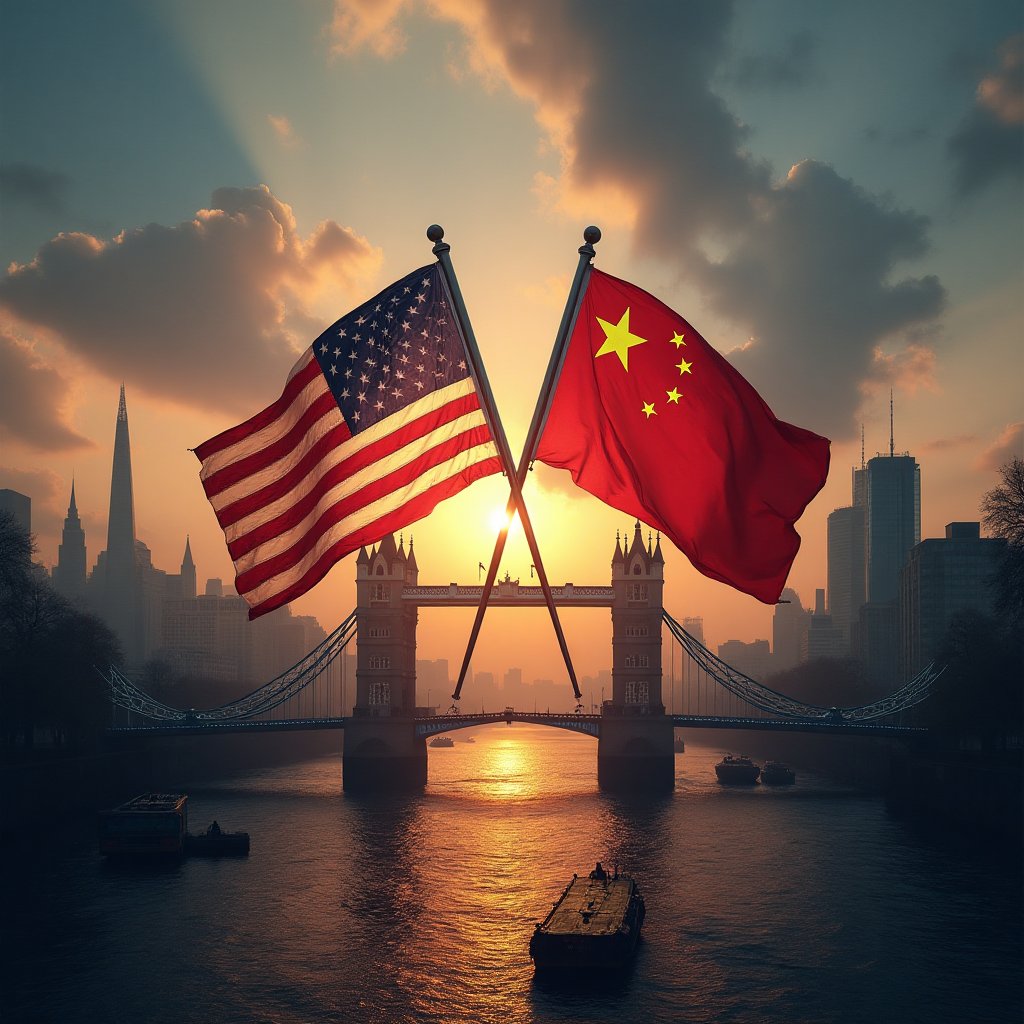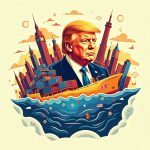Fresh talks between the United States and China, two titans of the global economy, have started in London as both countries seek to address the ongoing trade war that has disrupted markets and impacted everyday life for countless people. This issue is significant not only for investors and businesses but also for everyday citizens who rely on a stable economy. It raises questions about jobs, prices of goods, and long-term economic relationships. These discussions matter because they shape our world in profound ways, influencing the cost of everything from groceries to electronics.
Let me explain. Over the past couple of years, tariffs imposed on Chinese goods have led to increased prices for consumers in America and have affected supply chains globally. In simple terms, when the U.S. places tariffs—or taxes—on Chinese products, it often results in higher prices for the very products that people use daily. Imagine going to the store and finding that the bread you regularly buy is now more expensive; that’s a direct effect of these trade policies. According to BBC News, these negotiations in London are aimed at finding common ground to avoid further economic turmoil.
The stakes are high. This isn’t just business; it touches people's lives. In 2021 alone, U.S. consumers faced an estimated $350 billion burden from tariffs on Chinese imports. This money could have gone to other essential areas like education or healthcare. On the flip side, the tariffs have also impacted jobs in industries reliant on raw materials from China, creating a tug-of-war that many Americans can feel. Have you ever thought about how these global negotiations can trickle down to your wallet? This is why understanding these trade talks is essential for all of us.
Understanding Tariffs and Trade Wars
What are tariffs, anyway? In basic terms, tariffs are taxes on imported goods. When a government places tariffs on a country, it's typically a way to protect domestic products from foreign competition. For instance, if the U.S. imposes a tariff on Chinese electronics, it makes these products more expensive and gives American manufacturers a better chance to sell their goods. However, this can also backfire—affecting consumers who may find their favorite affordable gadgets now priced out of reach.
Key Points from Recent Trade Discussions
- Focus on Collaboration: The goal of the talks in London is for both nations to find mutually beneficial ways to resolve differences.
- Economic Impacts: Trade tariffs have resulted in higher prices for everyday items, stressing family budgets.
- Job Security: Job losses in certain sectors can be directly tied to these tariffs and trade disputes, affecting countless lives.
- Global Supply Chain Effects: A disruption in trade relations can lead to product shortages or increased wait times for consumers.
Real-Life Implications: A Case Study
To understand this better, consider a small business owner who imports kitchen gadgets from China. When tariffs increase, this owner faces two choices: raise prices for customers or absorb the costs, potentially driving the business into debt. A recent study by the U.S. Small Business Administration showed that many small business owners reported significant losses due to these tariffs. Their stories reflect how far-reaching the impacts of these trade talks are, touching individual lives and contributing to the bigger picture.
Statistics That Matter
Here are some troubling statistics to ponder:
- Over 300,000 jobs lost in the U.S. manufacturing sector since tariffs were first introduced in 2018.
- An increase of 23% in prices of imported goods like clothing and electronics due to tariffs.
- A reported $57 billion in American business losses due to supply chain disruptions.
These numbers tell a powerful story—one of real people who depend on these markets for their livelihoods.
Multiple Perspectives: The Bigger Picture
Discussions around these trade wars and tariffs can take various perspectives. On one hand, some policymakers argue that tariffs are necessary to protect U.S. jobs and industries from unfair competition. On the other hand, critics warn that tariffs harm consumers and can lead to retaliation that further escalates the trade war. What do you think? Is it worth the cost to protect jobs at the expense of increased prices?
The Future of U.S.-China Relations
The outcome of these talks is uncertain, and that uncertainty can breed anxiety. What would you do if you faced rising costs for the crucial items you need daily? The reality is that the decisions made during these negotiations will ripple through our global economy and can shape our lives in unexpected ways. It’s crucial for every citizen to stay informed.
Your Voice Matters!
Trade and tariffs are not just for economists or business owners; they affect each and every one of us. Your thoughts and opinions on these matters can shape discussions and influence the perspectives of those around you. What is your take on the trade talks? Do you believe tariffs are the right approach, or do you think other solutions should be explored?
Join our community here at iNthacity, becoming a part of the dialogue that defines our world. Like, share, and engage in the comments below. Your insights could help spark new ideas and lead to real change.
Disclaimer: This article may contain affiliate links. If you click on these links and make a purchase, we may receive a commission at no additional cost to you. Our recommendations and reviews are always independent and objective, aiming to provide you with the best information and resources.
Get Exclusive Stories, Photos, Art & Offers - Subscribe Today!
























Post Comment
You must be logged in to post a comment.